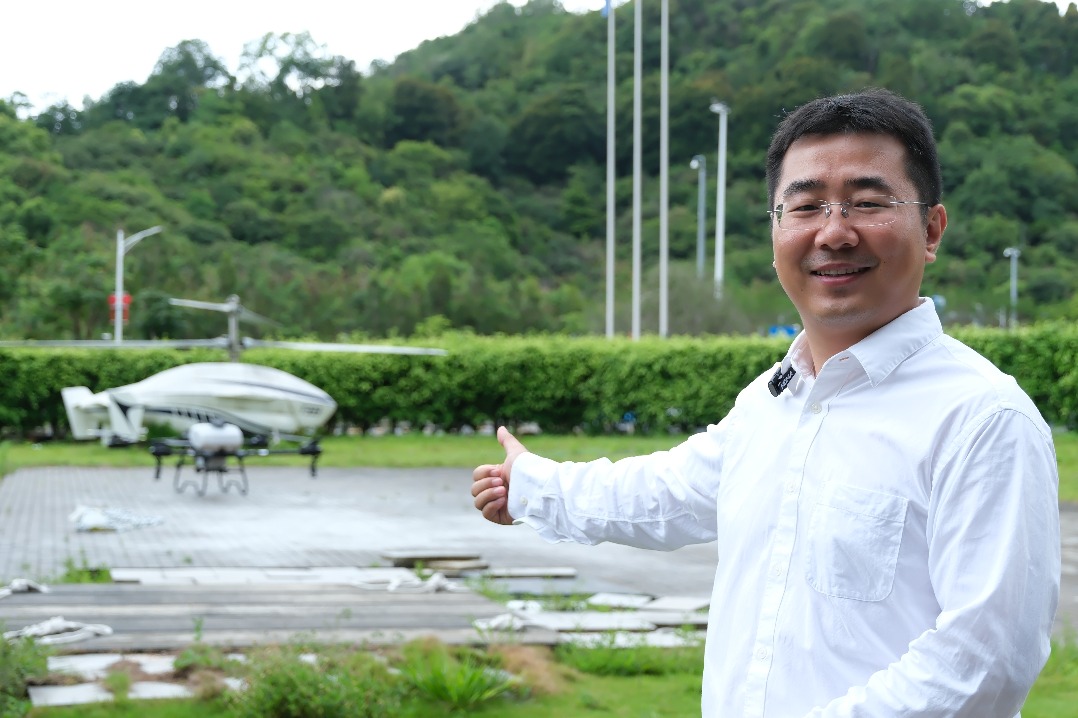A new word order

|
Chen Hsiu-yin teaching Chinese at the French-speaking Institut de la Providence de Champion. Liu Ge / for China Daily |

Growing demand for Chinese classes stems from surge in Sino-EU trade relationship
Instead of entering a university after his graduation from high school next year, Kieran-Jack Costello will travel to China alone and spend a year exploring the world's most-populous country.
From the perspective of a Chinese family, his decision would be considered wild or crazy, but instead, the 17-year-old who lives in Belgium has the full support of family and friends. Some admit they envy him.
"My school hasn't introduced Chinese classes yet, but we have French, German, Dutch and Japanese," says Kieran-Jack, who spends three hours a week learning Chinese in his spare time to prepare for his adventure.
"I think going to China for a year is a very good opportunity before university. I'm excited about putting my Chinese into practice!"
Kieran-Jack's strongest supporter has been his father, Nicholas Costello, deputy head of a unit at the European Commission's department for employment and social affairs. That's hardly surprising, because Costello senior was posted to Beijing several years ago and speaks Mandarin well. He believes his son's generation will benefit from the ever-closer ties between Europe and China.
Costello's family isn't unusual even though Kieran-Jack's background - Brussles-based, with a father from the UK and mother from Africa - is almost a template of diversity.
The number of people enthusiastically learning all they can about China is increasing dramatically in Europe, especially in light of the country's increasing influence on the global economy.
Europe has often repeated its commitment to open trade relations with China, most notably in the increasing efforts across the EU to improve communication with the country. One of the most striking changes of recent years is the number of officials and employees who have started learning Chinese.
"The main purpose of providing Chinese classes for EU employees and officers is that we want to promote the relationship between China and the European Union, commercially and culturally," says Anna Varna of the European Commission's human resources and security department.
The increasing demand for Chinese classes is associated with the surge in Sino-EU trade relationship, says Varna. China is the EU's second-largest trading partner, after the United States, and the EU is China's biggest trading partner.
In 2012, EU investment in China reached more than $6 billion, while $3.4 billion went from China into the EU, according to official data.
Rising demand
"During the past two years, the demand for Chinese has been the highest among all the language classes. That wasn't the case a few years ago, but now our biggest classes are for Chinese," says Eddy Johnson from the language training institute Scholengroep Brussel.
For many years, French, Russian and Spanish were the most popular courses among European Union and Commission staff, but as Johnson notes, Chinese and Arabic are now the languages of choice.
The Chinese class has about 60 students at different levels of proficiency, and the reasons for joining vary. One of the students, Demur Gaspard, who works for the European Commission, is learning Chinese to help him at work. "I deal mainly with Chinese affairs, so I'm learning the language for professional reasons," he says.
Apart from work-related reasons, many officials are learning Chinese for their own enjoyment. Tami Julien, director-general of development and cooperation at the European Commission, says his work mainly involves African issues, so for him learning Chinese is more about personal enjoyment.
Many EU officials have hired Chinese-speaking assistants to better connect with the country. Pawel Bienkowski, a 26-year-old assistant to Wojciech Olejniczak, a Polish member of the European Parliament, enjoys greeting Chinese reporters in fluent Mandarin, while Victor Bostinaru, a member of the European Parliament and vice-chairman of the delegation for relations with China, has hired a Chinese assistant ahead of a trip to the country next month.
However, EU employees are not the only ones learning Chinese, and the implementation of language classes is one of the hottest topics among school boards and parents in many European schools.
"Three years ago, only three schools in the French-speaking areas of Belgium taught Chinese. Now the number has climbed to more than 30. In the Dutch-speaking areas, it used to be four, but now 19 universities and schools have set up Chinese language courses," explains Wang Luxin, counsellor to the education department of the Chinese embassy in Belgium.
Olaf Mertens, director of the 165-year-old French-speaking Institut de la Providence de Champion, adds Chinese classes to the range of options at his middle school in 2011 in the hope that they will provide the children with a wider view of the world.
The school has 50 Chinese-language students, aged 12 to 15, and while the classes are not compulsory, many students have expressed a desire to learn the language and the school has received strong support from parents, he says.
Chinese teacher Chen Hsiu-yin, began her career in 2000. She visits the school once a week to teach a two-hour class, "I have received very positive feedback from the students, and they are all studying extremely hard," she says.
Androulla Vassiliou, European commissioner for education, culture, multilingualism, sport, media and youth, says she's proud of the commission's achievements in 2012 in terms of EU-China relations and confidently expects 2013 to be as conducive for fostering deeper, mutual understanding between the EU and the Chinese people.
Growing trend
The Woluwe European School in Brussels is a good example of the growing trend, she says.
It is part of Schola Europaea, or European Schools, an umbrella organization consisting of establishments that offer primary and secondary education and are located across seven countries.
The establishments, controlled jointly by the governments of EU member states, have more than 24,000 pupils, and the European Commission is a member of the board of governors.
The school has forged close links with its counterparts in China over the years, from introducing Chinese study in secondary schools to establishing a student exchange program with the Experimental School in Shanghai.
"I know that this school has very exciting plans to introduce courses in Mandarin and calligraphy, all taught by Chinese teachers," Vassiliou adds.
During the Chinese Spring Festival, hundreds of elementary students - many of whom were dressed in traditional Chinese clothing such as Tang suits or qipao - and parents watched a performance of Chinese arts before participating in a range of traditional cultural activities, including making dumplings, the tea ceremony, calligraphy, folk music and tai chi.
For Vassiliou, the increasing demand for Chinese is about looking forward to greater integration, deeper ties and a new direction for Europe.
"The Europe of tomorrow will not be inward-looking, focused on its own habits, languages and cultures. It will be a space increasingly open to exchanges with other peoples, a crossroads of multiple visions and values. I believe I can speak for our Chinese friends when I say that they share our vision of closer future relations based on mutual knowledge, respect and understanding."
tuoyannan@chinadaily.com.cn
(China Daily 03/29/2013 page19)
Today's Top News
- Consumption set to continue robust growth
- Li's visit to Rio to strengthen BRICS links
- Indian pilgrimages to Xizang resume after hiatus
- Lai's shameless display of hubris at cost of well-being of island's residents
- End of USAID doesn't end overt weaponizing of US aid
- Xi urges youth, students' federations to deepen reform, innovation for new achievements































